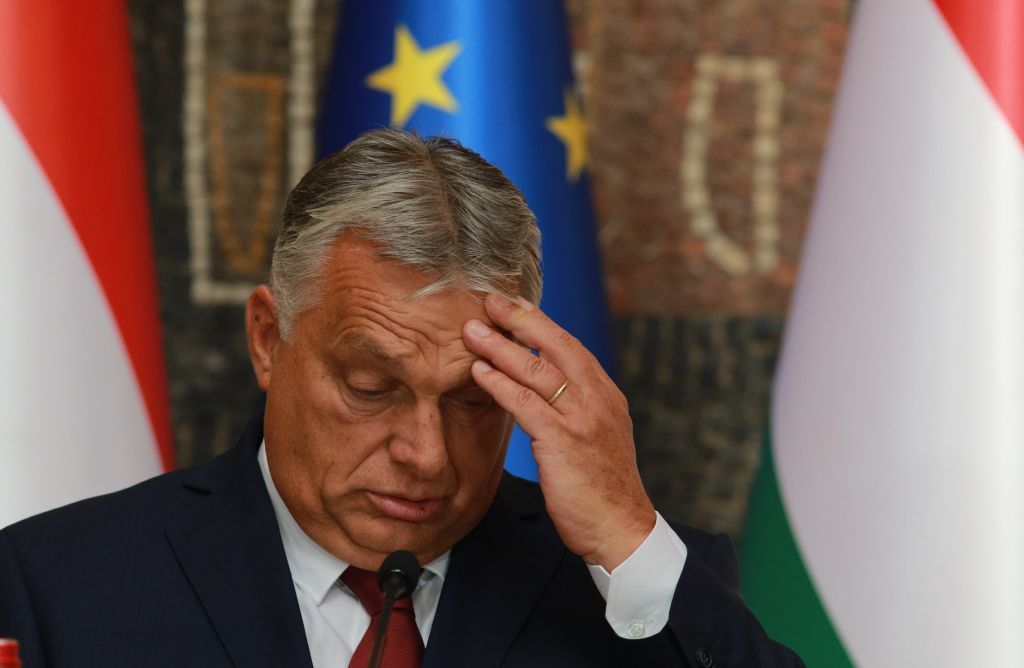Hungary to block EU's Ukraine defense funds until Kyiv lifts ban on Lukoil transit, Budapest says

Budapest will continue blocking the disbursement of 6.5 billion euros ($7 billion) from the European Peace Facility (EPF) for Ukraine military aid until Kyiv allows the transit of Russia's Lukoil oil, Hungarian Foreign Minister Peter Szijjarto said on July 23.
Both Hungary and Slovakia said that Ukrainian sanctions effectively halted the oil transit of the Russian Lukoil company to the two countries.
The Slovak leadership also threatened unspecified repercussions against Ukraine, reminding Slovakia's key role as an electricity supplier amid Ukraine's energy deficit caused by Russian strikes.
Oleksiy Chernyshov, head of Ukraine's state-owned energy company Naftogaz, said earlier this week that while the transit of the Lukoil product through Ukraine has ceased, the overall transit volumes have remained stable. He called Bratislava's and Budapest's complaints a "political issue."
"I also made it clear that as long as Ukraine fails to resolve the issue, everyone can forget about the 6.5 billion euros in compensation for arms transfers under the European Peace Facility," Szijjarto said in an interview with the ATV news channel.
Hungary, broadly seen as the most Kremlin-proximate EU member, has repeatedly obstructed aid for Ukraine on account that it "prolongs" and "escalates" the ongoing war. These views have been often echoed in Slovakia since Ukraine-skeptic Prime Minister Robert Fico took office last fall.
The blocking of funds under the EPF predates the dispute over Lukoil supplies. Hungary has been stalling tranches under the program, meant to reimburse members who provided aid to Ukraine, for over a year.
According to Szijjarto, Hungary is working on legal and technical solutions to ensure the long-term oil supply if Ukraine does not lift the restrictions.
"I think that this is a crystal clear situation here, and the European Commission should really pressure Ukraine to allow Lukoil oil deliveries again," Szijjarto said after he and the Slovak government turned to the EU for mediating the dispute.
According to the foreign minister, Lukoil supplies represent 33% of Hungary's crude oil imports, as well as 40-45% of Slovakia's imports. The two countries were among the few EU members granted exceptions from the ban on Russian pipe oil imports.












